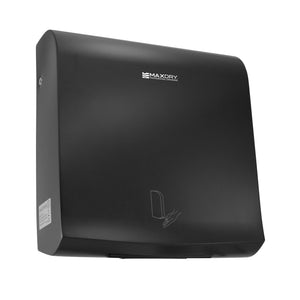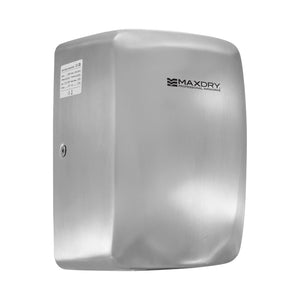Tips for Improving Indoor Air Quality
What if I told you that the air inside your home could be more polluted than the air outside? Surprised? Many of us are. Poor air quality can lead to health issues, including allergies, respiratory problems, and even long-term health risks. But don't worry, with the right knowledge and a few simple steps, you can significantly improve the air you breathe.
Let's explore the key aspects of Indoor Air Quality (IAQ) improvement together. By the end of this blog, you'll be armed with the knowledge (and some fun examples) to make your indoor air fresher than ever!
How Can I Improve Indoor Air Quality at Home?
The most straightforward answer? Indoor air purification. Think of your house as a large lung. Just as our lungs need clear airways to function at their best, our homes need regular cleaning and decluttering. Some of other indoor air quality improvement tips are:
- Regularly vacuuming, using eco-friendly cleaning products, and avoiding tobacco smoke can be the first steps to freshen indoor air.
- If you have pets, groom them regularly to reduce shedding. Wash their bedding frequently, and consider using allergen-proof covers on pillows and mattresses.
- Ensure proper ventilation by opening windows and doors when weather permits. Use exhaust fans in bathrooms and kitchens to remove moisture and odours.
- Invest in a hygrometer to measure humidity levels. Ideally, indoor humidity should be between 30% and 50%. Use humidifiers or dehumidifiers to maintain these levels.
Follow these steps for enhancing indoor air quality.
What Are the Best Ways to Reduce Indoor Allergens?
Reducing indoor allergens is crucial, especially for those with allergies. A simple solution is focusing on indoor air filtration. High-efficiency particulate air (HEPA) filters can trap these microscopic particles, making it harder for them to irritate your respiratory system.
Here's a more detailed approach:
- Air Purifiers: As mentioned earlier, use air purifiers with HEPA filters to trap allergens like dust mites, pollen, and pet dander.
- Regular Washing: Wash your bedding, curtains, and rugs in hot water regularly to kill dust mites. Consider using allergen-proof covers on pillows and mattresses.
- Pet Care: Bathe and groom your pets frequently. Brushing them outdoors can help prevent loose fur and allergen buildup inside.
- Allergen-Proofing: Invest in allergen-proof covers for pillows and mattresses. These covers create a barrier that prevents allergens from escaping.
- Reduce Clutter: Minimize clutter in your home as it can trap dust and make cleaning more challenging.
How Does Proper Ventilation Impact Indoor Air Quality?
Imagine being in a room full of chatter. After a while, you need some quiet, right? Similarly, our homes sometimes need a break from indoor air. This is where ventilation strategies come in.
Proper ventilation has a significant impact on indoor air quality by reducing the concentration of indoor pollutants. Here's how:
- Fresh Air Exchange: Ventilation systems bring in fresh outdoor air while expelling indoor air. This exchange dilutes indoor pollutants, making the air cleaner.
- Moisture Control: Ventilation helps manage humidity levels, preventing mould growth and reducing the risk of allergens.
- Odour Removal: It helps remove odours from cooking, cleaning, and other indoor activities, making your home more pleasant.
Open your windows and doors once a day, allowing your home to 'breathe'. This act can reduce the concentration of indoor pollutants considerably.
Are There Natural Methods to Purify Indoor Air?
Absolutely! Houseplants are the superheroes of the indoor environment. They don't just make our spaces greener but act as natural air purifiers. Spider plants, for example, can remove up to 90% of the toxins in your indoor air in just two days.
Another example is peace lily which is excellent at removing common indoor pollutants and adding humidity. Who knew being a plant parent came with such perks?
What Role Does Humidity Play in Indoor Air Quality?
Humidity plays a crucial role in indoor air quality:
- High Humidity: Excess humidity can promote mould and mildew growth, leading to respiratory issues. It can also create discomfort and worsen allergies.
- Low Humidity: Dry air can irritate your skin, eyes, and respiratory tract. It can also increase the spread of airborne viruses.
Aim for a balanced indoor humidity, using dehumidifiers or humidifiers as needed. It’s all about creating a comfortable and allergen-free environment.
Which Air Filtration Systems Are Effective for Home Use?
For home use, consider air purifiers with HEPA filters. These filters can capture particles as small as 0.3 microns, which includes the most common indoor pollutants like dust, pollen, and pet dander. Activated carbon filters can also help remove odours and volatile organic compounds (VOCs).
UV filters, on the other hand, can kill bacteria and viruses. Do your research and invest in one that fits your home's needs.
What Are the Benefits of Houseplants for Air Quality?
As said before, besides looking gorgeous, plants like the Peace Lily and Boston Fern can remove pollutants such as formaldehyde and xylene. It's like having a mini rainforest in your home, working to clean the air.
Houseplants offer numerous benefits for indoor air quality:
- Air Purification: Many plants can absorb and neutralize indoor pollutants, improving air quality.
- Increased Oxygen: Plants release oxygen during photosynthesis, which can boost oxygen levels in your home.
- Mood Enhancement: Having plants around can improve your mood and reduce stress.
Consider incorporating air-purifying plants like the ones mentioned earlier to enjoy these benefits.
How Can I Minimize Volatile Organic Compounds (VOCs) Indoors?
To reduce VOCs indoors, follow these steps:
- Choose Low-VOC Products: When buying paints, cleaning supplies, and furniture, opt for products labelled as low-VOC or VOC-free.
- Ventilation: Proper ventilation helps dissipate VOCs. Use exhaust fans and open windows when using VOC-emitting products.
- Air Purifiers: Select air purifiers equipped with activated carbon filters, which can effectively capture VOCs.
Are Air Purifiers Effective for Improving Indoor Air Quality?
Air purifiers can be highly effective for improving indoor air quality, especially when equipped with HEPA filters. They remove particles, allergens, and even some odours from the air, providing a cleaner and healthier indoor environment.
Here's a more detailed exploration of their benefits:
- Particle Removal:
Air purifiers, particularly those equipped with HEPA filters, are exceptionally effective at removing particles from the air. This means that the air you breathe becomes significantly cleaner, reducing the risk of allergies and respiratory issues.
- Allergen Reduction:
For individuals with allergies, air purifiers are a game-changer. They continuously work to reduce allergen levels in the air, providing relief from sneezing, itching, and congestion. Pet allergies, in particular, can be managed effectively with the use of air purifiers, as they can trap airborne pet dander and hair.
- Odour and VOC Reduction:
Many air purifiers come with activated carbon filters. These filters are effective at absorbing and neutralizing odours and VOCs from sources like cooking, cleaning products, and off-gassing from furniture and building materials. This not only improves air quality but also enhances the overall indoor environment.
- Improved Respiratory Health:
Air purifiers can significantly benefit those with respiratory conditions such as asthma or chronic obstructive pulmonary disease (COPD). By removing airborne irritants and pollutants, they help create an environment that is easier on the respiratory system, reducing the frequency and severity of symptoms.
- Enhanced Sleep Quality:
Cleaner air can lead to better sleep quality. When allergens and pollutants are reduced, you're less likely to experience nighttime allergies or discomfort, allowing you to wake up feeling more refreshed.
How Often Should I Change Air Filters for Better Air Quality?
The frequency of changing air filters depends on the type of filter and usage. This is like asking how often you should change the oil in your car. Depending on usage and the environment, for maximum efficiency, most filters should be changed every 60-90 days. As a general guideline:
- HEPA Filters: These typically last 6 to 12 months, but check the manufacturer's recommendations.
- Activated Carbon Filters: These may need replacement every 3 to 6 months, depending on usage and the level of odours or VOCs in your home.
Bonus Mention: Eco-friendly Hand Dryers
These might not directly purify the air, but they do promote a healthier environment. They reduce paper waste, and the latest models have improved air systems that don’t just blow bacteria around, making them a great addition to your home.
Regularly changing filters ensures that your air purifier operates at peak efficiency, maintaining excellent indoor air quality.
Incorporating these detailed and interactive solutions into your daily routine can lead to a significant improvement in your indoor air quality. Remember that a healthier living environment starts with the air you breathe, so take the necessary steps to make your home a haven of clean, fresh air.
Related Products
-
ThinMAX High Speed Hand Dryer - Black Coated Stainless Steel

- Regular price
- $427.60
- Sale price
- $427.60
-
SpaceMAX High-Speed Vertical Hand Dryer, Brushed Stainless Steel (Satin)

- Regular price
- $279.50
- Sale price
- $279.50



